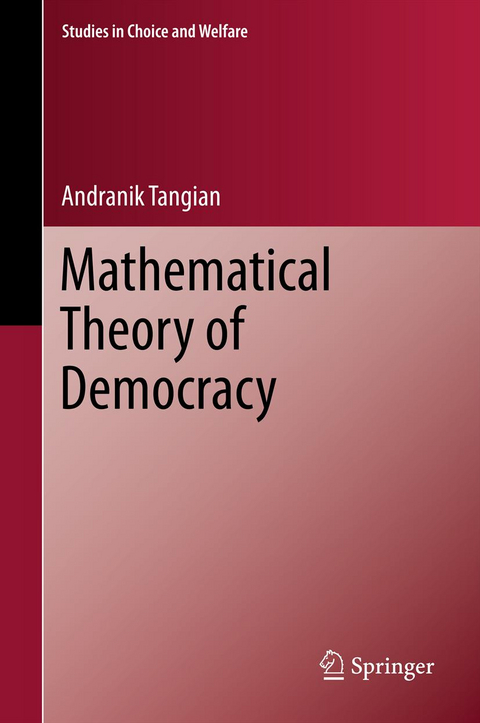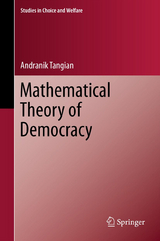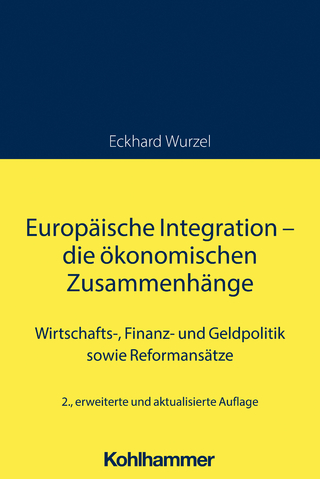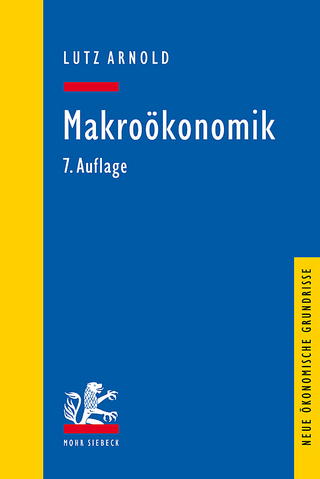Mathematical Theory of Democracy
Springer Berlin (Verlag)
978-3-642-38723-4 (ISBN)
The mathematical theory of democracy deals with selection of representatives who make decisions on behalf of the whole society. In this book, the notion of representativeness is operationalized with the index of popularity (the average percentage of the population whose opinion is represented on a number of issues) and the index of universality (the frequency of cases when the opinion of a majority is represented). These indices are applied to evaluate and study the properties of single representatives (e.g. president) and representative bodies (e.g. parliament, magistrate, cabinet, jury, coalition). To bridge representative and direct democracy, an election method is proposed that is based not on voting but on indexing candidates with respect to the electorate's political profile. In addition, societal and non-societal applications are considered.
Dr. Dr. Andranik Tangian is head of referat `Policy modeling' of the Institute for Economic and Social Research (WSI) in the Hans-Böckler-Foundation, Düsseldorf, and Professor of the Karlsruhe Institute of Technology
History: Athenian Democracy.- Echoes of Democracy in Ancient Rome.- Revival of Democracy in Italian Mediaval City-Republics.- Enlightenment and the End of Traditional Democracy.- Modernity and Schism in Understanding Democracy.- Theory: Direct Democracy.- Dictatorship and Democracy.- Representative Democracy.- Statistically Testing the Representative Capacity.- Concluding Discussion: Bridging Representative and Direct Democracies.- Applications: Simple Applications.- Application to Collective Multicriteria Decisions.- Application to Stock Exchange Predictions.- Application to Traffic Control.- Appendix: Computational Formulas.- Probabilities of Unequal Choices by Vote and by Candidate Scores.- Statistical Significance of Representative Capacity.
From the reviews:
"This book is much more technical and goes into more theoretical depth, and ... it is worth seeking out if you are looking for this type of treatment. ... Tangian has managed to write about an incredibly wide range of topics in great mathematical, historical, and philosophical depth, and yet the book is very readable. ... reader who wishes to dedicate the required time and energy will learn quite a bit about Democracy, its history, its limitations, and its strengths." (Darren Glass, MAA Reviews, February, 2014)
"The book consists of three parts: history, theory and applications. ... Andranik Tangian has written an impressive volume, not only in size, but particularly in terms of the fields covered. The author's erudition is remarkable. ... The historical part of the book is suitable for independent study ... . Parts two and three ... are suitable for advanced doctoral courses in welfare economics, political science and applied mathematics." (Hannu Nurmi, Journal of Economics, Vol. 111, 2014)
"The author provides a novel viewpoint, engaging analyses in a stimulating historical context, and interesting new methods and suggestions which certainly have the strong merit of being oriented towards practical concerns. ... overall, this is a well-written engaging book offering new ideas which are certainly worth considering when attempting practical reforms to modern-day democratic institutions and is well worth reading." (Swapan Das Gupta, zbMATH, Vol. 1283, 2014)
| Erscheint lt. Verlag | 12.8.2013 |
|---|---|
| Reihe/Serie | Studies in Choice and Welfare |
| Zusatzinfo | XX, 615 p. |
| Verlagsort | Berlin |
| Sprache | englisch |
| Maße | 155 x 235 mm |
| Gewicht | 1094 g |
| Themenwelt | Wirtschaft ► Volkswirtschaftslehre |
| Schlagworte | Arrow's Paradox • Condorcet's Paradox • Demokratie • Mathematisches Modell • Representative Democracy • Representativeness • Social Choice |
| ISBN-10 | 3-642-38723-3 / 3642387233 |
| ISBN-13 | 978-3-642-38723-4 / 9783642387234 |
| Zustand | Neuware |
| Haben Sie eine Frage zum Produkt? |
aus dem Bereich




